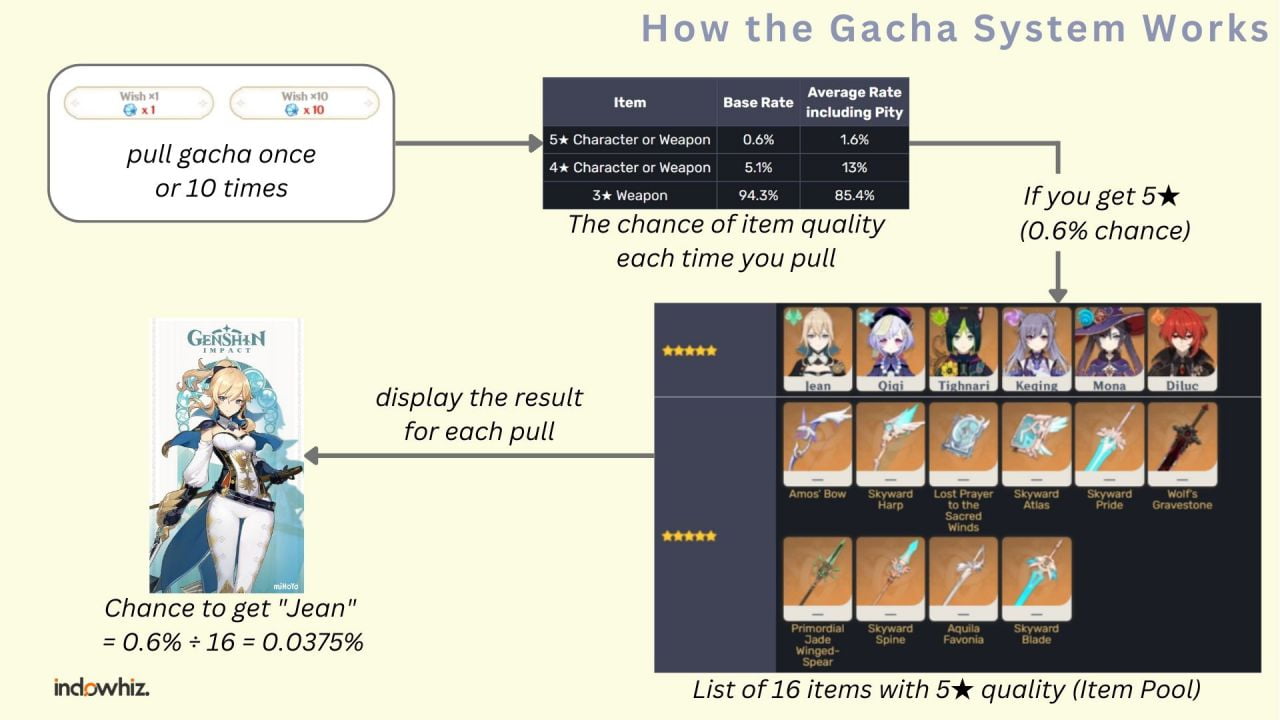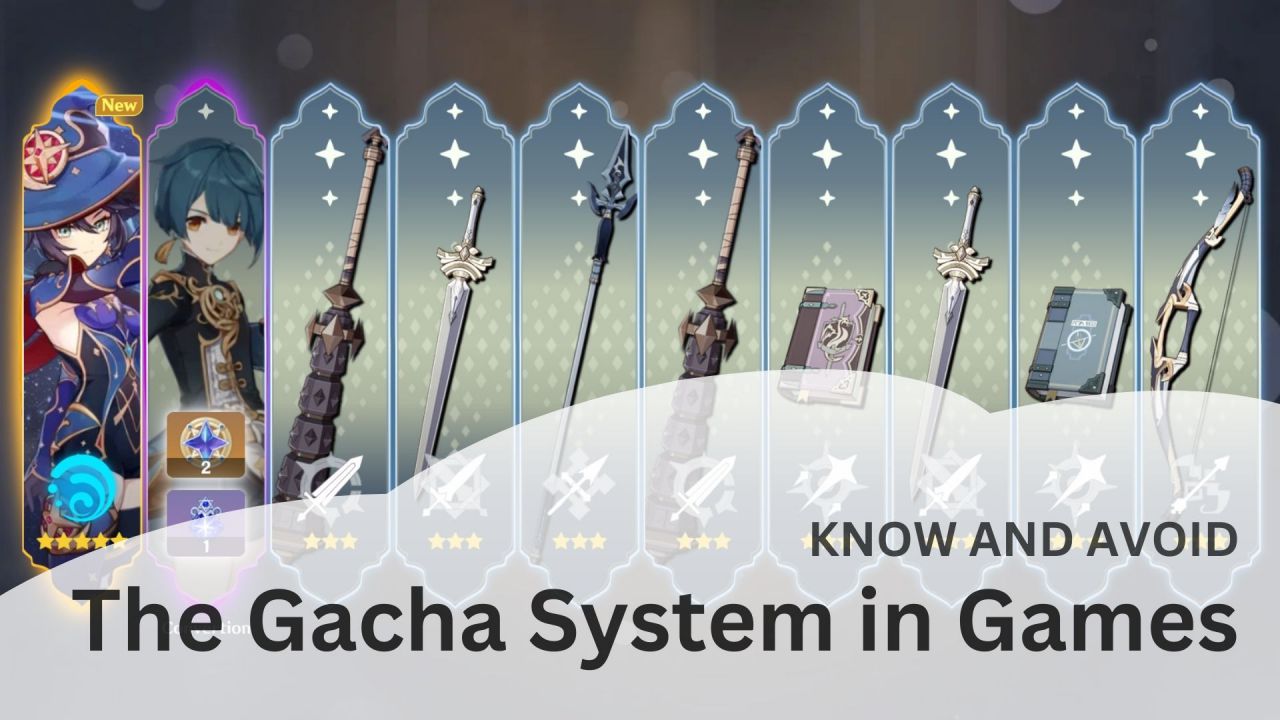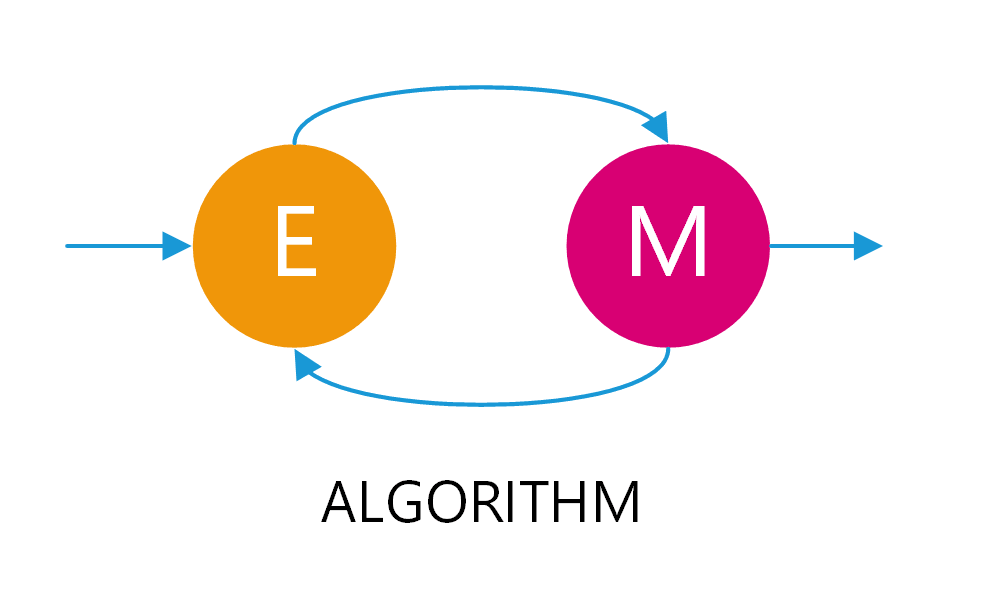Last Updated on March 31, 2023
Most of today’s games, especially those on mobile, implement gacha, loot boxes, and similar systems. This mechanism or system is regarded as one of the worst. Because, it potentially makes players addicted to gambling, and exploit them financially. Thus, several countries have begun to regulate, limit or even ban the implementation of this system.
1. What is Gacha?
In general, “gacha” is a monetization system or mechanism in games, based on chance. This system carries the concept of toy vending machines from Japan.
In simple terms, this system allows players to “pull” using in-game currency, then get item reward. It can be virtual items or content, including characters, weapons, and upgrades. However, players would get a random item for each pull. The rarer an item, the less likely to get it.

Many people criticize this system because it relies heavily on luck. Also, it encourages players to spend their money collecting rare items. Although they may have spent a lot of real money, there is no guarantee of getting the item they want.
Gacha system in mobile games
Implementing a gacha system is one of the simplest and most popular ways for developers to monetize their games. Most free-to-play games, especially those for mobile platforms such as Android and iOS, often have this system.
Players can spend their time getting rare items through quests, wishes, and other random missions. That chance usually comes after the player has finished a mission. Yet completing missions usually takes too long, with little chance of getting these rare items. Thus, players may be tempted to use in-game currency to complete the mission.
Apart from that, game developers will offer another way to get rare items, which is through the gacha system. Initially, players can use the existing in-game currency to play it. Of course, the gacha system will quickly use up the players’ in-game currency. Later, many players are tempted to make in-app purchases (microtransactions). It is done using real money to buy in-game currency and play it.
Characteristics of gacha
As mentioned earlier, games with a gacha mechanism or system are usually free-to-play. Players can continue playing the game without spending any money. However, some aspects of gacha in games keep players interested.
- Item rarity concept
Rare items were popular among players. It is because they had higher statuses, were more expensive, and were not owned by everyone. However, because gacha uses a random number generator (RNG), players cannot guess what items they will receive. The rarer an item, the harder for players to get it. Ultimately, players tend to keep playing it, hoping to get the item they want in the next pull. In fact, this might lure players into making in-game purchases. - Exclusivity concept
Game developers often create event banners up to a certain time.This often leads some players to fear missing (FOMO) on exclusive deals at those events. As a result, they will continue playing gacha in hopes of getting those exclusive and unique items. - Social concept
Some players want a rare or exclusive item, if their friends have it. Then, they will make in-game purchases, play gacha, and hope to get that item.
Most players dislike in-game purchases or microtransactions. But they still do it when they are addicted to playing gacha. Although, actually they know there are no guarantees.
The National Health Service (NHS) of England states that gacha, loot boxes, and other similar systems can lead to addiction, especially in children. This happened because the system introduced gambling too soon.
2. Is gacha a form of gambling?
The popularity of various games with gacha and loot box systems, and how players spend money on uncertain things, makes this question often appear in search lists. However, there are some debates about whether the gacha system is gambling or not.
Several parties in the UK parliament have said that this system is not considered gambling, because there is nothing to bet on. Another reason is that players get rewards that have no financial value in the real world. Even playing games with this system does not force players to sacrifice their real money. It makes sense, and for this reason, the gacha system may look more like a random reward than gambling.
According to some studies, gacha is one of the systems that introduces gambling. The reason is that many players use real money, hoping to get the item they want, at the next pull. Of course, the amount of money they used was not directly proportional to the value of the items they got. This is because players have no control over the items they get. If the player is lucky, he can get the rare items he hopes for, but nothing is guaranteed. Therefore, many countries limit or prohibit the gacha system, as it causes players to experience financial issues and is addictive.
Eventually, the belief that the gacha system was a form of gambling grew stronger and more widely accepted. Anyone should consider the consequences if they intend to play console, desktop, or mobile games with this system.
3. Risks of playing gacha
Currently, there are many anime-themed mobile games that are fun to play and have an exciting storyline. However, those mobile games implement a gacha, loot box, or similar system. There are many risks or negative effects that you should not ignore.
Addiction and overspending
The first and foremost negative effect of playing gacha and loot boxes is addiction. If the players were addicted, they would start spending their money to buy opportunities to play them. Hopefully, they will be able to obtain the item they want. In this context, players who spend real money to make in-game purchases are commonly called “whales.”
Meanwhile, developers designed the games so that players would continue to spend their money on them. Indeed, not all players fall into the category of whales. However, players who cannot control their spending while playing games are, of course, vulnerable to financial problems in the future.
Unfortunately, the younger the player, the higher the possibility of the player becoming addicted to playing gacha. In fact, there is no age restriction for playing games that implement this system. As a result, there are higher chances that they will start spending real money.
No guarantees
Several games have a “pity system,” so players who fail to get a promotional item at the first pull will be guaranteed to get it after several gacha pulls. However, many games don’t have this kind of pity system. As a result, it is not uncommon for players to make in-game purchases, to get more opportunities on the same day.
However, no one can guarantee that a game that implements gacha will:
- Provide the item that the player expects.
There is no guarantee that players will receive the items or results they want, because of the slim chance involved. In the end, only the player’s luck decides the result. - Exist forever.
This means that if a developer shuts down a game, players will lose all character development and any money they have spent in that game. In fact, many well-known games that have implemented gacha, have been closed for various reasons.
Unfavorable drop rates for players
Every item in the gacha, loot boxes, and similar systems has a certain chance or drop rate. The rarer the item is, the smaller the drop rate. It could even be less than 0.1%. That is, in 1,000 times of playing, hopefully, it will appear once.
Game developers made this decision in order to ensure a steady income for their companies. Unfortunately, they didn’t care how much the players had to lose. In fact, there are players having trouble developing certain characters because they have no access to certain items, even though they have spent a lot of money on gacha.
4. Legal issues of the gacha system
Casinos in various countries have strict rules. For example, the minimum age limit to enter and play at that venue is 18 years old. The gacha, loot boxes, and similar systems in games, on the other hand, have no minimum age requirement to play.
Genshin Impact, for example, with a general rating of 13+, is one of the games that implements a gacha system. This means that teenagers who are at least 13 years old can play the game. However, who would have thought that children under 13 years of age could still download and play it easily? It is because there is no control system that regulates the age restriction.
As a result, several countries have restricted, even banned, the application of the gacha system in games.
- Japan, South Korea, and China, for example, limit the activity of the gacha system in games.
The game developer must display the chance or drop rate of getting each item. Furthermore, they must also limit the amount of money that can be used to play gacha or loot boxes. In addition, the games must obtain official certification, or they will face legal consequences. - Starting in 2021, Australia declared that the gacha system is a form of gambling.
Therefore, the games with this system are only for adults. - Apart from the Netherlands, Belgium is also one of the countries that prohibits games with loot boxes and gacha systems; Diablo Immortal is one of them.
- Then the Norwegian Consumer Council (NCC)—an agency in Norway—tried to fight gacha in their country.
Currently, the agency is gathering help from other countries in Europe to fight loot boxes.
5. Avoid playing gacha
Truly, gacha in a game is one of the worst systems. Especially if the player was addicted to the game and made frequent in-app purchases to keep playing, even if the results were uncertain.
Gacha may still be a “gray area” in many parts of the world. It’s important to consider whether a game with this system is right for you.
If you are a whale-type player, you should stay away from games with this system to avoid addiction and financial issues. There are still lots of cool console, desktop, or mobile games that don’t implement the gacha system, such as Stardew Valley, Terraria, and Motorsport Manager Racing.

Keep gacha away from kids
The characteristics of gacha make any game that implements this system unsafe for children. Therefore, parents can do the following:
- Monitor internet usage and gacha games.
The best way to avoid gacha addiction is to monitor your child when they use the internet and play games. Parents must have a clear understanding of the characteristics of a game that implements a gacha system. Furthermore, they can prohibit or limit children from playing the game, and give an understanding of all the risks. - Setting screen time rules
Implementing screen time limits is the right step to balance your child’s online and offline activities. Currently, there are several third-party applications that can help set time limits for playing games, especially for children. This will undoubtedly help children apply screen time consistently, whenever and wherever they want. - Disable the in-game purchase option.
The next method is to turn off in-app purchases and eliminate microtransaction payment options. Furthermore, do not keep any funds or credit/debit card information on devices that children can access. Hopefully, this could prevent in-app purchases in mobile games that have a gacha system. - Play games with children.
To find out whether children play gacha games or not, parents can play with their children. Apart from knowing what children are playing, it also helps parents better understand their children’s interests—a win-win solution, right?



